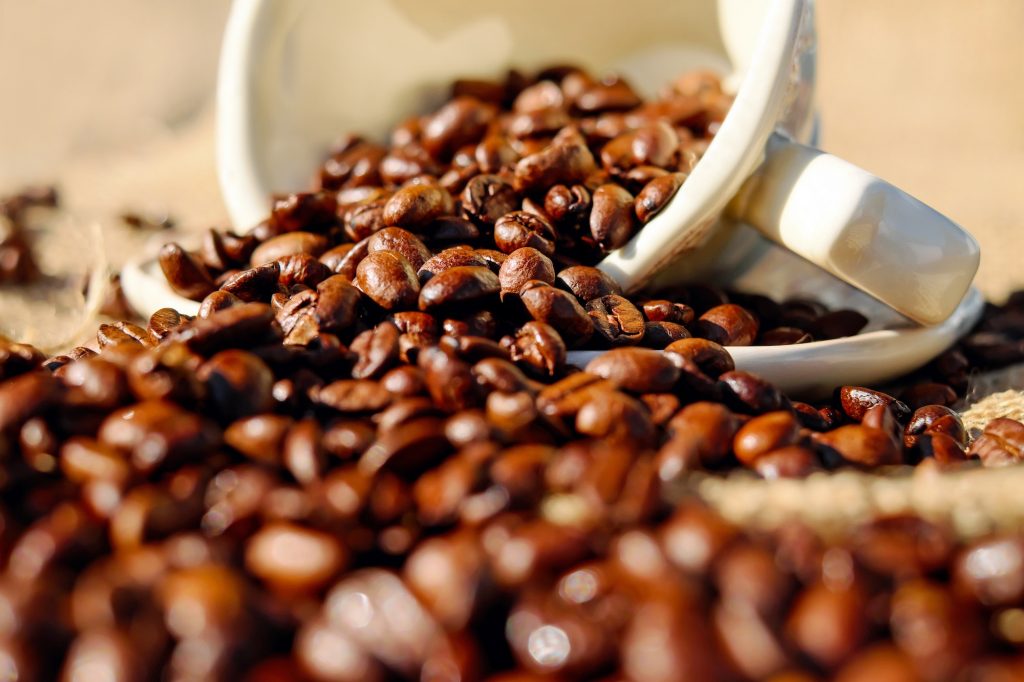Healthy Ingredients
Is coffee good for your health?
Coffee is the much-loved beverage that we can’t seem to live without. For many of us, starting the day without a cup of piping hot java is unthinkable. But are there any health benefits of coffee?
Coffee was first introduced to the western world by Italian traders. Thanks to Pope Clement VIII, whose decision to revoke the ban on this “too stimulating” beverage, ushered in an influx of coffee houses right across Europe.
The roasted beans used in the brewing process are berries taken from the Coffea plant (Coffea arabica). These berries (or ‘cherries’ as they are known) are reddish-purple in colour and contain the seeds we call ‘coffee beans’. The effects of coffee on our wellbeing have long been disputed, but many medics now believe there may be some interesting body benefits to be gained.
Health benefits of coffee:
Live longer
Drinking coffee may reduce the risk of all-cause mortality, say researchers. A large study published in the journal Annals of Internal Medicine found that for men, a high consumption of coffee (more than three cups a day) was associated with a 12% lower mortality risk compared to those who didn’t drink coffee. The risk was 7% lower for women. Precise reasons are unknown, but the rich antioxidant content in coffee beans may be partly to thank.
Keep dementia at bay
A 2016 study suggested that there may be a link between caffeine consumption and developing dementia. Researchers found that women who drunk around three cups of coffee a day were less likely to develop cognitive impairments compared to those who had consumed little to no caffeine. It’s thought that the sense of alertness associated with caffeine may be responsible for the prevention of MCI (mild cognitive impairment), a known precursor to dementia.
Boost athletic performance
The stimulant caffeine present in coffee may help to enhance athletic performance and improve stamina. One theory maintains that the caffeine blocks the chemicals in our brain responsible for making us feel tired. In addition, caffeine triggers the release of fat into the bloodstream which is then used as fuel by our muscles and enables us to exercise for longer.
Reduce the risk of developing Parkinson’s
A number of studies have shown that a daily dose of caffeine (two 8oz/approx. 225ml cups of black coffee) may help control the involuntary movements associated with Parkinson’s Disease. Researchers believe it’s the neuroprotective effect of both caffeine and quercetin in the beans that may be responsible for reducing the risk of developing this all-too-common disease.
Lower the risk of liver cancer
Research has highlighted the benefits of consuming coffee in helping to ward off liver cancer. A range of studies led by the University of Southampton and the University of Edinburgh found that those who drank two cups of coffee a day had a 35% reduced risk, and that for those who drank five cups, the risk was halved.
Take Note…
While the stimulating effects of coffee can prove beneficial in many respects, bear in mind that excess amounts of caffeine can be unwise.
- The NHS advise pregnant women not to exceed 200mg of caffeine per day. This is the equivalent of two cups of instant coffee. Some doctors recommend opting for decaffeinated coffee instead (bear in mind dark chocolate and black tea also contain caffeine).
- Drinking too much caffeine (more than 400mg per day) can lead to insomnia, dizziness, muscle tremors, anxiety and an increased heart rate.
- It is generally advised that those with IBS, ulcers, gastritis and Crohn’s disease should avoid coffee. This is due to the irritating effect of several compounds and acids found in coffee beans (try boosting your gut health to help).
Try it
There are two main species of Coffea- Arabica and Robusta, (Arabica accounts for two thirds of the world’s production). The flavour of beans produced by these plants depends on several factors, including location and altitude. For example, Arabica beans thrive in subtropical regions such as Brazil, to more equatorial regions like Ethiopia. In terms of taste, a Brazilian coffee tends to be more chocolatey. A Columbian blend will usually have a sweeter and more nutty flavour.
We find coffee on our shelves in three main forms: whole beans, ground and freeze-dried. In all cases, growers pick and dry the ‘green’ beans before roasting them. After this, the beans are either ground to make fresh coffee or converted into instant coffee. This a process that involves brewing large quantities of coffee, reducing it down to a concentrate, and then finally drying it.
What about decaf coffee?
As for decaf, it is important to note that there are a number of methods to remove caffeine. At least 97% of caffeine must be removed for decaff coffee. This includes the use of chemical solvents whose effects on our health remain somewhat ambiguous. To avoid synthetic chemical traces altogether, opt for the ‘Swiss water method’. This is where Green Coffee Extract works to remove the caffeine (check labels or quiz the maker).
Black coffee (fresh beans/ground) is perhaps the most beneficial for our health due to the higher number of antioxidants present. In addition, organic, Fairtrade coffee grows without synthetic pesticides, herbicides and other additives which may prove damaging to our health and limit the overall amount of nutrients available. A better choice for your daily cuppa all round.
Loved this? Read on here:






